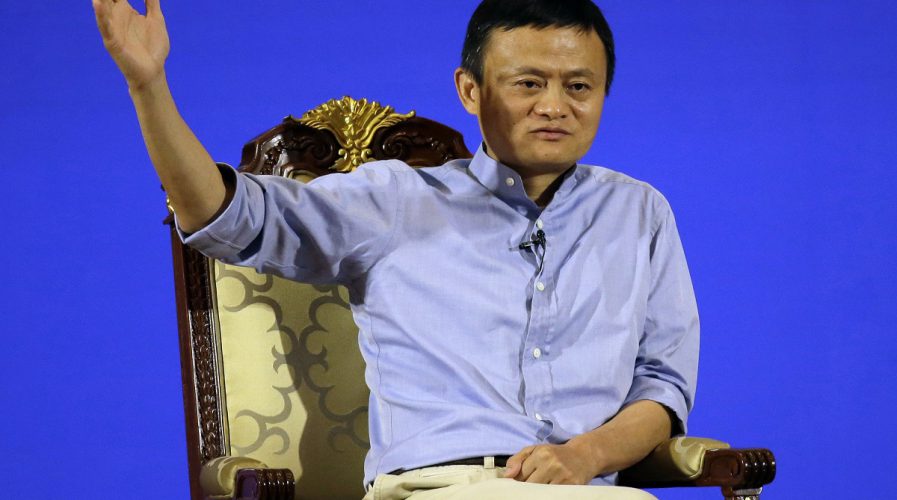
From its humble beginnings in founder Jack Ma’s Hangzhou apartment, Alibaba has evolved into what is today the world’s largest e-commerce empire. Source: AP
A year in review: Making sense of Alibaba’s acquisitions, investments, and strategies
ALIBABA has set its sights on global domination and this is seen in its strategic M&A activity over the past two years. No longer just a Chinese e-commerce force to be reckoned with, Alibaba has been expanding aggressively throughout Asia across a number of different sectors. Outside of e-commerce, the Chinese unicorn has also bought up and invested in companies in the media, entertainment, electronics, mobile and transport space.
To outline what Alibaba could be plotting, we’ve separated all of its recent acquisitions into its respective categories to make sense of its growth strategies.
Media and Entertainment
Media and entertainment appears to be the area that Alibaba is pushing most aggressively. Its acquisition of the South China Morning Post, Hong Kong’s oldest English language newspaper, at the end of 2015 marked its push into traditional media. It also bought up video-streaming company Youku Tudou, in a deal that was reportedly worth US$5 billion. Youku was the company’s largest investment to date and is a part of its content generation and entertainment ecosystem development strategy.
Youku's Founder To Head Alibaba's $15 Billion Culture & Entertainment Investment Fund https://t.co/yHfD87Qlde #china #tech #youku #alibaba pic.twitter.com/CpRd1nvc1o
— TMTPost (@tmtpostenglish) November 3, 2016
Why: Owning a reputable English language newspaper not only gives it a voice in political circles and also follows in the footsteps of Jeff Bezos of Amazon buying up the Washington Post. The Youku deal was critical for Alibaba after it launched Alibaba Pictures Group and also because its rivals Tencent and Baidu have also been pushing aggressively into content.
E-commerce
Buying up competitors in attractive markets in this space is a no-brainer for Alibaba as it looks to extend its reach outside of China. In April 2016 of this year, it acquired a majority stake in Rocket Internet’s Lazada for US$1 billion and invested US$500 million alongside Foxconn and SoftBank into Indian online marketplace Snapdeal. Lazada, now under the stewardship of Alibaba is also making its own acquisitions as it bought up grocery-delivery startup Redmart last month.
Why #Lazada’s acquisition of #RedMart is a win-win https://t.co/xbRhAoID1U #ecommerce #logistics #alibaba #southeastasia #blk71 #zalora
— Brian F (@furm_b) November 21, 2016
Why: Alibaba’s acquisitions in the e-commerce space are a straightforward expansion strategy into neighboring markets and investing in Lazada and Snapdeal will give it a strong foothold in both Southeast Asian and Indian markets.
SEE ALSO: Alibaba’s Jack Ma has been a busy man, inks deal with Spielberg’s film company
Mobile and Transport
Mobile and transport are perhaps on the sidelines of Alibaba’s growth strategy compared with media and e-commerce, but still significant. Last year, Alibaba invested almost US$600 million into Chinese smartphone maker Meizu. It’s also an investor in China’s top ride-hailing app Didi Chuxing, which signifies Alibaba’s push into areas outside of digital commerce and content.
https://www.youtube.com/watch?v=EqlTtEm-FS8
Why: Backing Meizu makes sense because Alibaba has been determined to have its YunOS operating systems integrated with more smartphones to battle Android and iOS in China. It’s rival Tencent was also an investor in Didi (the companies became co-investors as Didi Dache and Kuaidi Dache merged) so it’s a space that makes sense for Alibaba to invest in if it wants to stay competitive.
READ MORE
- Data Strategies That Dictate Legacy Overhaul Methods for Established Banks
- Securing Data: A Guide to Navigating Australian Privacy Regulations
- Ethical Threads: Transforming Fashion with Trust and Transparency
- Top 5 Drivers Shaping IT Budgets This Financial Year
- Beyond Connectivity: How Wireless Site Surveys Enhance Tomorrow’s Business Network
